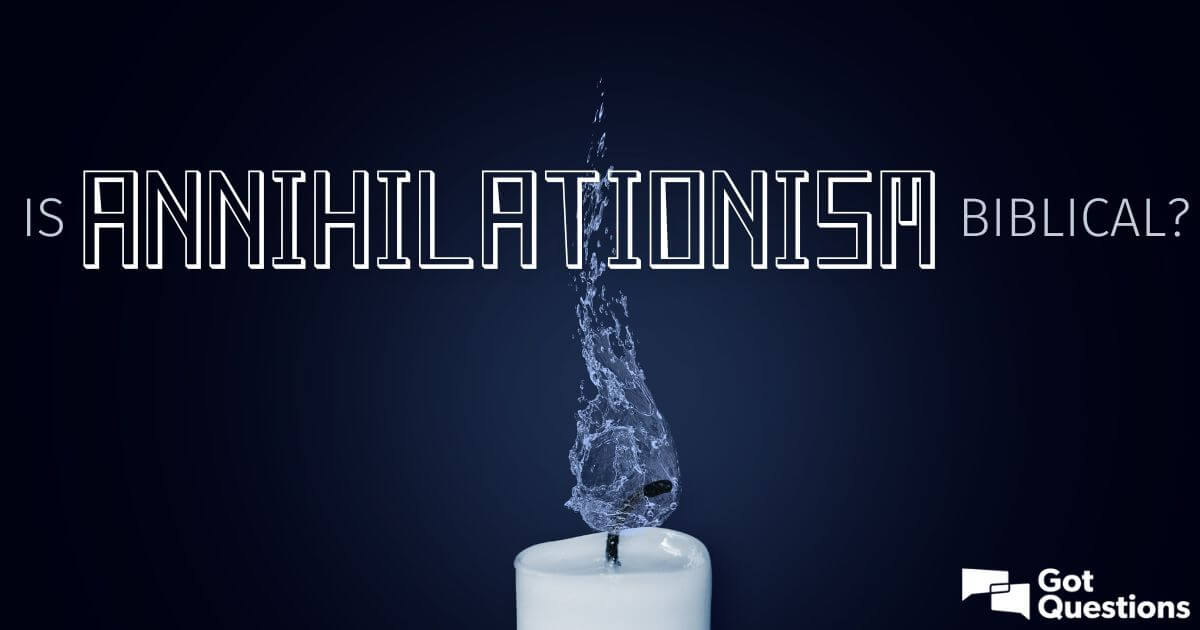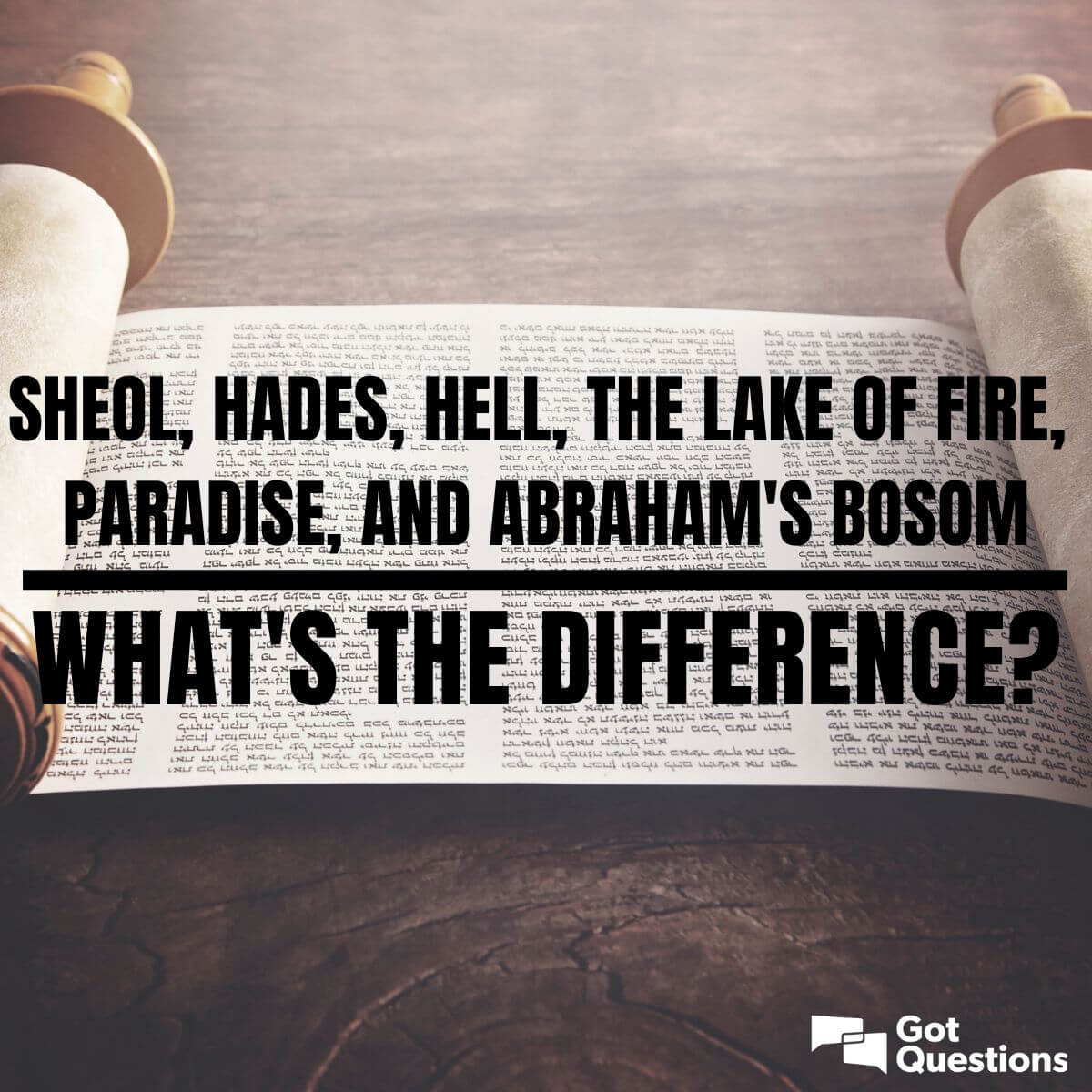Annihilationism is the belief that unbelievers will not experience an eternity of suffering in hell, but will instead be “extinguished” after death. For many, annihilationism is an attractive belief because of the awfulness of the idea of people spending eternity in hell. While there are some passages that seem to argue for annihilationism, a comprehensive look at what the Bible says about the destiny of the wicked reveals the fact that punishment in hell is eternal. A belief in annihilationism results from a misunderstanding of one or more of the following doctrines: 1) the consequences of sin, 2) the justice of God, 3) the nature of hell.
In relation to the nature of hell, annihilationists misunderstand the meaning of the lake of fire. Obviously, if a human being were cast into a lake of burning lava, he/she would be almost instantly consumed. However, the lake of fire is both a physical and spiritual realm. It is not simply a human body being cast into the lake of fire; it is a human’s body, soul, and spirit. A spiritual nature cannot be consumed by physical fire. It seems that the unsaved are resurrected with a body prepared for eternity just as the saved are (Revelation 20:13; Acts 24:15). These bodies are prepared for an eternal fate.
Eternity is another aspect which annihilationists fail to fully comprehend. Annihilationists are correct that the Greek word aionion, which is usually translated “eternal,” does not by definition mean “eternal.” It specifically refers to an “age” or “eon,” a specific period of time. However, it is clear that in the New Testament, aionion is sometimes used to refer to an eternal length of time. Revelation 20:10 speaks of Satan, the beast, and the false prophet being cast into the lake of fire and being tormented “day and night forever and ever.” It is clear that these three are not “extinguished” by being cast into the lake of fire. Why would the fate of the unsaved be any different (Revelation 20:14-15)?
One evidence for the eternality of hell is Matthew 25:46, “Then they [the unsaved] will go away to eternal punishment, but the righteous to eternal life.” In this verse, the same Greek word is used to refer to the destiny of the wicked and the righteous. If the wicked are only tormented for an “age,” then the righteous will only experience life in heaven for an “age.” If believers will be in heaven forever, unbelievers will be in hell forever.

In relation to the nature of hell, annihilationists misunderstand the meaning of the lake of fire. Obviously, if a human being were cast into a lake of burning lava, he/she would be almost instantly consumed. However, the lake of fire is both a physical and spiritual realm. It is not simply a human body being cast into the lake of fire; it is a human’s body, soul, and spirit. A spiritual nature cannot be consumed by physical fire. It seems that the unsaved are resurrected with a body prepared for eternity just as the saved are (Revelation 20:13; Acts 24:15). These bodies are prepared for an eternal fate.
Eternity is another aspect which annihilationists fail to fully comprehend. Annihilationists are correct that the Greek word aionion, which is usually translated “eternal,” does not by definition mean “eternal.” It specifically refers to an “age” or “eon,” a specific period of time. However, it is clear that in the New Testament, aionion is sometimes used to refer to an eternal length of time. Revelation 20:10 speaks of Satan, the beast, and the false prophet being cast into the lake of fire and being tormented “day and night forever and ever.” It is clear that these three are not “extinguished” by being cast into the lake of fire. Why would the fate of the unsaved be any different (Revelation 20:14-15)?
One evidence for the eternality of hell is Matthew 25:46, “Then they [the unsaved] will go away to eternal punishment, but the righteous to eternal life.” In this verse, the same Greek word is used to refer to the destiny of the wicked and the righteous. If the wicked are only tormented for an “age,” then the righteous will only experience life in heaven for an “age.” If believers will be in heaven forever, unbelievers will be in hell forever.

Is annihilationism biblical? | GotQuestions.org
Is annihilationism biblical? Is it heresy to believe the annihilation of the wicked after death? Is the suffering in Hell eternal, or only the flames?
www.gotquestions.org

 word. Do not add or take away from it.
word. Do not add or take away from it.
 we get our glorified bodies.
we get our glorified bodies.